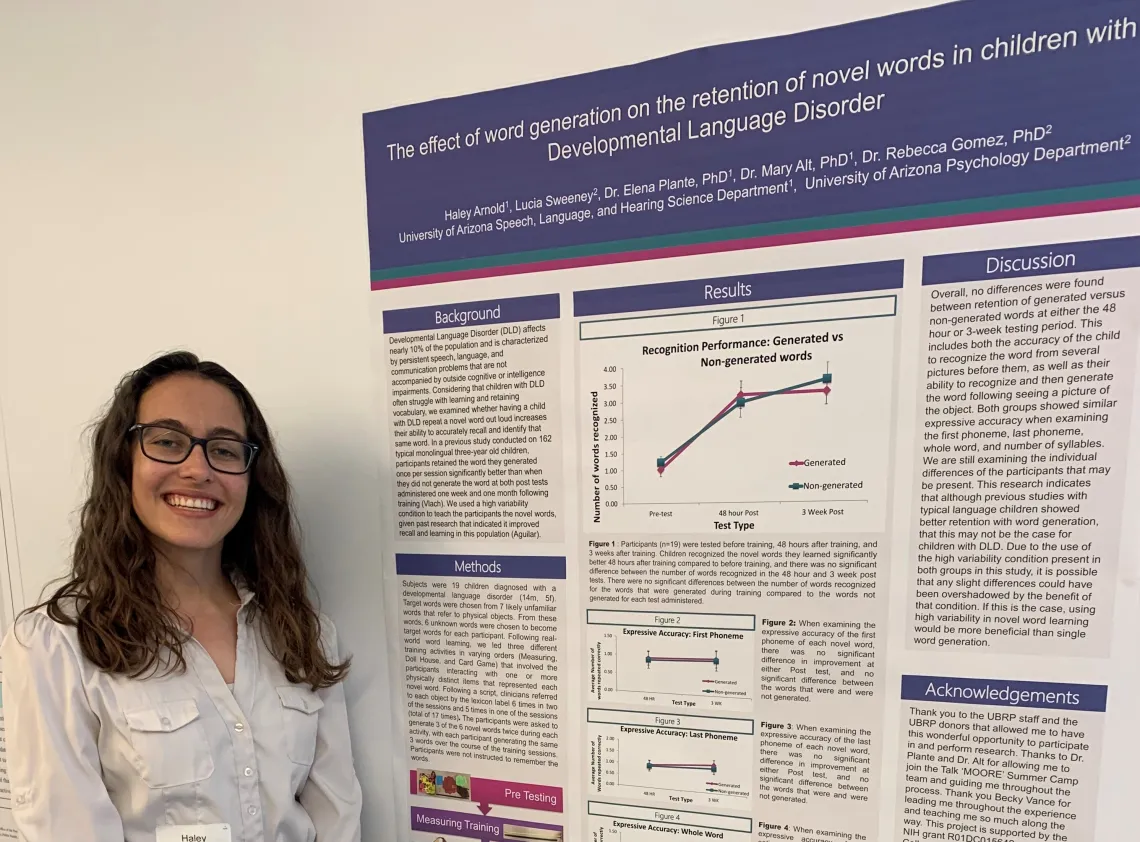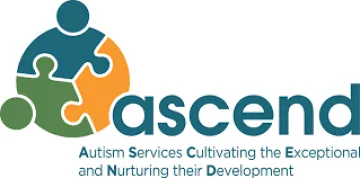The CACTI Blog: Celebrating Autism Awareness Month: What my Experience Working with Families has Taught Me

By Haley Arnold, 2020-2021 Undergraduate Certificate in Developmental Disabilities
I’ve immensely enjoyed my experience as a behavior technician for United Cerebral Palsy of Southern Arizona (UCPSA). As a senior at the University of Arizona, I’ve been pursuing an Undergraduate Certificate in Developmental Disabilities through Sonoran UCEDD throughout the past year. Through this program, I was required to seek a community experience working with an organization in the field of disabilities. What was intended to be a short-term internship experience transformed into a job position for me when I was offered a position at UCPSA. Since becoming an employee, I’ve been able to work directly with families who have young children with Autism Spectrum Disorder (ASD). From my experiences of collaborating with practiced professionals at UCPSA as well as families of children with disabilities, I’ve gained an entirely different perspective on ASD and available treatment.

I’m employed through the ASCEND program at UCPSA which is dedicated to providing interventions for children with developmental disabilities. The treatment that ASCEND provides is called Applied Behavioral Analysis (ABA) and is a research-based practice that can effectively aid children with ASD at different stages of development. The main goal of ABA is to recognize behaviors linked to different events and to then help either reinforce positive behaviors or help replace harmful behaviors with more beneficial ones. This program provides in-home treatment to children that includes and encourages the involvement of the parents as well as many different specialists from ASCEND directly. Treatment plans are designed by trained Board Certified Behavior Analysts (BCBA) who create behavior interventions based off the individual needs of the child. As a behavior technician, I’m trained directly by the BCBA who has gathered specific data relevant to my client.
Starting as a Behavior Technician, I was first trained by UCPSA on many different relevant topics. I became CPR and First AID certified, received an overview on the basics of intervention strategies and terminology, as well as learned about the importance of confidentiality and ethical standards related to the position. I then decided to pursue additional training needed to become certified as a Registered Behavior Technician (RBT). This involves 40 hours of online training specific to ASD, interventions and strategies in ABA, and ethical considerations when working with this particular population that can often be mistreated. These modules helped convey to me the previous ways in which people with ASD were misunderstood and how many treatments were not fit for their needs and wants. For example, many repetitive behaviors that people with ASD participate in may be very comforting or helpful to them when navigating environments that are new or overwhelming to their senses. These behaviors are helpful to people with ASD and it would likely be harmful to try to target these behaviors for interventions. Understanding ASD as well as the needs and wants of a particular individual with autism and their families is critical when providing treatment of any kind. Centering the intervention around what works for the individual and changing based of their needs and progress is how ABA should be conducted and is a central facet of ASCEND.
The person-centered nature of ABA and the way in which it is research-based and data-driven are my favorite aspects of the intervention. Through this experience, I’ve learned more about ASD and am looking forward to getting to know more families and their individual struggles and perspectives. In the future, I plan on becoming a Speech-Language Pathologist who would work with younger children who have communication difficulties. From this experience, I’ve learned to value and encourage the input of both the child and the family on the type and quality of services they receive. Being able to communicate directly with those receiving the services and hearing them express their needs to me and my co-workers has really reinforced how important self-advocacy is for those who have a disability or a child with a disability. These lessons are valuable to me and will continue to inform how I will be as a future clinician. Learning with and from these families directly has allowed me to understand the importance of strengthening your ties with the community and expressing and fighting for what you and your family requires.
The CACTI Blog features the voices of our interdisciplinary trainees and Community Advisory Council members as they highlight diverse images of people with disabilities and provide community information and advocacy on disability issues. Check Out The CACTI Blog
